In a beautifully crafted tribute to courage and determination, filmmaker Peter Levay brings us “Roland Ratzenberger,” a four-part docuseries that sheds light on the Austrian racing driver’s journey to Formula 1. Marking the 30th anniversary of Ratzenberger’s tragic accident at the San Marino Grand Prix in 1994, the series is a testament to a man who pushed through every obstacle to achieve his lifelong dream.
While the harrowing events of the 1994 San Marino Grand Prix claimed the lives of both Ratzenberger and Ayrton Senna, it also paved the way for the HANS device, a life-saving innovation that has since become an integral part of motorsports safety. With the adoption of HANS and the continuous enhancements to cars and circuits, thankfully the sport has evolved to prioritize driver and spectator protection.
In this exclusive interview, filmmaker Peter Levay shares his decade-long journey of collaboration with Ratzenberger’s family, contributors, and the production team, highlighting the importance of remembering determined individuals and learning from the past to find motivation, inspiration and drive in today’s crazy – and often discouraging – world.
D: I understand you initially worked on a 60-minute documentary for Roland Ratzenberger’s family. How did this collaboration evolve over the past decade, ultimately leading to the docuseries?
P: It all began when I met Roland’s parents at Imola for a memorial event about ten years ago. I was filming the event when they asked me „what are you doing?”. I told them I was recording, and they asked me to share footage I’d captured. Obviously it meant a lot and still means a lot for them. Afterwards, one thing led to the other. They invited me to their home, and we formed a close bond. First, I digitized their personal collection of VHS tapes featuring Roland’s racing journey from the 70s to the 90s. Interviews with his parents became the foundation for the initial documentary, which later inspired the docuseries. But of course, using all the footage from races, etc. is not that easy.

D: I can imagine securing copyrights must have been challenging.
P: Absolutely, it was a difficult task. However, our desire to honor Roland’s legacy and raise awareness about his journey motivated us to create the docuseries. The documentary was in German only available on Amazon, the series is now reaching a wider audience. That was our primary purpose with this new project.
D: What do you think continues to fascinate people about Roland Ratzenberger’s story and character?
P: The Imola weekend in 1994 had a profound impact on Formula 1, transforming safety standards and regulations. These tragedies unfolded before a global audience, deeply affecting fans worldwide. Even back then F1 was a popular sport, families watched the rescue attempts on location. Suddenly, a 3-time world champion and an F1 rookie had a fatal accident. It was a real shock!
I think Roland’s journey particularly resonates with people – he spent 15 years overcoming obstacles, fueled by determination and motivation, ultimately achieving his dream without significant financial backing. That level of determination is very inspiring.
D: The docuseries brings up the difficulties of entering Formula 1, including financial hurdles, sacrifices, whether it is worth chasing that dream or only rich kids have a real shot. Can you talk a bit more about this aspect and its connection to Roland’s story?
P: Roland’s journey took him through various racing series and places, from Germany to Japan, to constantly pushing him to prove his talent while balancing financial constraints and earning his way to F1. It’s heartwarming to see that his close friends and fellow racing drivers still remember and honor him, which makes me proud to have created a documentary that helps share his story and provides some solace to his family. Because at its core, this is a human drama about a son taken way too soon from his loving family.
D: The trust you’ve developed with Roland’s parents, evident from the first episode, is wonderful to see. As you mentioned, these might be stories about the racing world, yet they all boil down to human stories. The human elements immediately connect us to them.

One aspect of the show that surprised me, among others, was Roland’s professionalism from the start—his focus on physical fitness and mindset which were uncommon in his era. Pat Symonds (F1’s Chief Technical Officer) lately shared a story about Senna needing to be pulled out of his car due to exhaustion in his early F1 years, highlighting how unusual Roland’s dedication to fitness was.
P: Absolutely! Roland’s dedication to physical fitness was remarkable. I found it fascinating that in the family’s private archives, there were books on nutrition and health, showing that he prioritized what he ate and drank, unlike many drivers at the time who’d smoke cigarettes and drink the night before a GP. I think his commitment to physical strength played a „safety net” role in his journey to Formula 1, he wanted to be fully ready and not risk his seat for not being a hundred per cent fit.
D: It is so interesting, we normally associate drivers like Schumacher and the 90s with the first boom of fitness in F1 and Ratzenberger had been on the same path way earlier.
Another aspect of his journey involved relocating to the UK and then Japan. Could you tell me more about how these experiences shape his career? Moreover, in a recent interview, Zhou discussed the challenges young drivers face when pursuing Formula racing outside of countries like the UK. He said that if a Chinese driver wants to get to any of the Formula categories, relocating at the age of 4 or 5 is a must. Has globalization changed this landscape, or do you think these traditional pathways remain crucial for success?
P: During Roland’s era, Formula Ford was the foundation for aspiring drivers like Senna and Schumacher. Success in Formula Ford opened doors to higher categories, especially in the UK where prestigious teams like Williams and McLaren were based. Winning races and networking with team principals at these events could lead to breakthrough opportunities, you know, trying to pass your business card at a racing event. One of the big bosses might go „Hello. I’ve seen you win on Sunday? Would you come and talk to me at the factory on Monday?”
Roland’s charm and friendliness certainly contributed to his progress too. However, it seems that even today, young drivers must relocate to the UK to increase their chances of success. The entire package, including talent, connections, and location, remains vital in the industry.

D: Comparing the final show to your initial vision and outline, how much did it evolve during production and post-production? Did you face any unexpected challenges or changes along the way?
P: While we had an outline and a rough structure in mind, the docuseries naturally evolved as we delved deeper into Roland’s life and gathered more interviews. We divided it into four episodes to highlight the various stages of Roland’s journey and emphasize the hard work and time it took to progress through each phase.
Not every interview was planned from the beginning. I started with those ten people I knew and who wanted to contribute. Then the scope was gradually expanded as more people expressed interest in sharing their perspectives. This process continued throughout post-production, as we identified missing elements or angles, it was like putting a puzzle together. While the story could have been told with fewer voices, a higher number of interviewees helped us paint a more vivid portrait.
D: I presume your purpose was to create more of an investigative docuseries.
P: That’s absolutely right.
D: You’ve managed to involve prominent figures like Franz Tost, who are selective about their participation in documentaries. How did you convince them and what other challenges did you face while working on the project?
P: Convincing high-profile individuals like Franz Tost to join the project was both a challenge and a source of pride. It required persuasion, and complete on set professionalism, as their time is valuable, and expectations are high. Their contributions definitely add a quality bonus to the project.
While having those interviews was somewhat challenging, dealing with legal and technical aspects brought us greater difficulties. This included acquiring rights for footage and music, determining where to allocate resources, and tons of emailing, emailing and emailing. Building trust and credibility so that we would get the footage we were begging them for.
May I ask something from you, as a fellow filmmaker; how do you manage the balance between the creative storytelling aspect and the logistical, technical, and business demands of producing a documentary? Wouldn’t it be easier if we could just get on a plane, go to set, do the interview, record scenes and then get back on the plane?
D: It’s true that in the past, people often specialized in specific roles like directing, editing, or producing. However, the industry has become so competitive that it’s almost impossible to maintain a career without being versatile. I think only above a certain level in the hierarchy and with much luck can directors do that.
For me, the creative process and storytelling are the most important part of my work. That said, I believe I do have an eye for detail when it comes to managing the production as a whole, not just the story itself. I enjoy seeing the bigger picture, and put things together. Nonetheless, the rapidly changing trends in the industry and financial pressures can sometimes be as you said; a „beast” and take away from the good, creative energy I’d like to maintain.
D: In the current media landscape, many filmmakers, including renowned directors like Coppola and Scorsese, struggle to secure funding and distribution for their work. How do you perceive the future of documentaries in this context, what can you see happening around you?
P: I think documentaries are beautiful and highly important. I have seen most documentaries that are available out there. Documentary filmmakers, like other creatives, see each other’s work and get inspired, but we also see each others’ struggle. Everyone struggles to a certain degree, this is a tough industry. However, documentaries are worth the pain. Maybe let’s say Csárdás will be forgotten in 50 years, but if you make a documentary about it then it will be preserved for the future. I made documentaries about my mother, my father and my father-in-law. Now I have their stories on an SD card, their grandchildren and great grandchildren will be able to watch them and get a sense of who they were. Documentaries act as time capsules, allowing future generations to connect with their past.
~ by Dora Endre ~

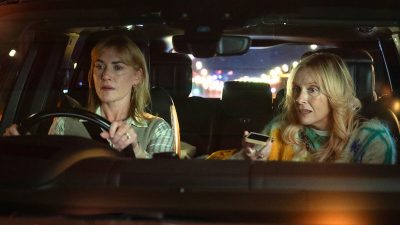
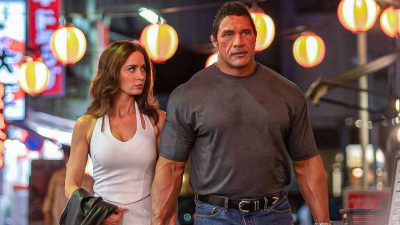
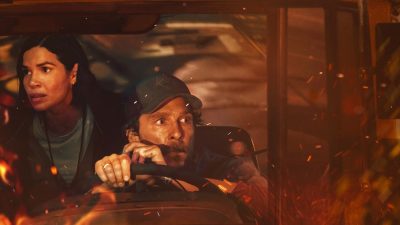


















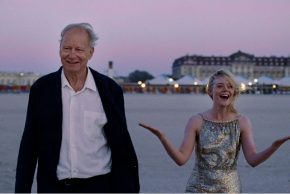
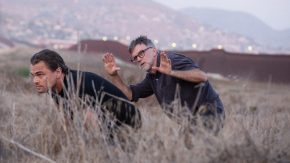
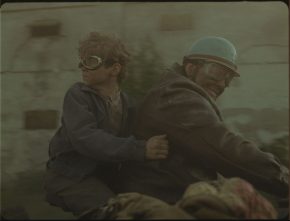
Comments